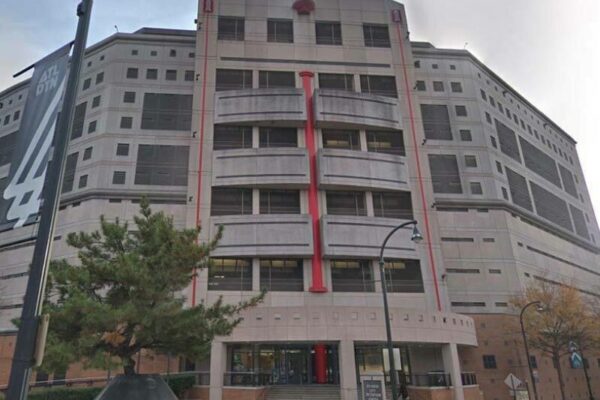For immediate release: October 12, 2022
CONTACT: Dorrie Toney, ACLU of Georgia, [email protected]
Qainat Khan, ACLU, [email protected]
ATLANTA — An analysis of people jailed by the Fulton County Sheriff’s Office finds that the County could eliminate long-term overcrowding at Fulton County Jail without leasing additional space at the Atlanta City Detention Center (ACDC).
The analysis, published in a report entitled “There Are Better Solutions: An Analysis of Fulton County’s Jail Population Data, 2022,” by the American Civil Liberties Union and the American Civil Liberties Union of Georgia, is based on data provided by the Fulton County Sheriff’s Office regarding people detained by the County on Sept. 14, 2022. On this day, Fulton County Jail held 2,892 people — 301 people over capacity.
Of the 2,892 people detained, 728 could have been released if the county:
- Stopped the continued incarceration of people simply because they cannot afford their bond;
- Released most people charged with misdemeanors with appropriate nonmonetary conditions;
- Indicted people charged with felonies in a timely manner (within 90 days, as required by Georgia law); and
- Diverted more eligible people to diversion programs.
"Our data analysis shows that Fulton County can and should implement these proven, sustainable solutions to overcrowding in the Fulton County Jail,” said Eunice Cho, senior staff attorney at the ACLU’s National Prison Project, and an author of the report. “Jail expansion, by leasing the Atlanta City Detention Center, is the wrong way to go about addressing overcrowding and conditions of confinement. County officials should address the root causes of overcrowding by abandoning policies and practices that unnecessarily detain people.”
The ACLU and ACLU of Georgia’s analysis comes as the Atlanta City Council considers an amendment next Monday, Oct. 17, to accelerate the process of leasing the ACDC to Fulton County.
Under the original ordinance, the lease could not be executed until a committee composed of city and county representatives conducted a comprehensive analysis of the Fulton County Jail population.
“Our analysis shows that implementing commonsense policies, many of which are demanded by Georgia law, would make increasing carceral spaces unnecessary,” said Fallon McClure, deputy director of policy and advocacy at the ACLU of Georgia. “The recommendations in this report lift up good governance, reduce wealth-based discrimination in the criminal legal system, and seek a more holistic solution to overcrowding in Fulton County.”
Local advocates have been organizing in opposition to the jail expansion, and national civil rights organizations submitted a letter to the Atlanta Mayor and City Council last week, urging them not to move forward with the lease.
A fiscal impact analysis by the Legal Action Center found leasing the jail will actually cost Atlanta financially. The lease will not cover the cost to Atlanta of operating the jail, while other alternative uses for the jail could generate revenue for the city.
Atlanta had planned to close ACDC as a jail, and repurpose the building as a community center to provide services and education.
The following statements can be attributed as noted:
Robyn Hasan, executive director, Women on the Rise
“We are the ones that have slept on the floors, who have endured the conditions of Fulton County Jail and Union City Jail. More jails are not the solution. The money invested in this lease can be invested in the people of Atlanta, to provide resources to those in need."
Roberta (Toni) Meyers Douglas, vice president of state strategy & reentry, Legal Action Center
“We’ve estimated that Atlanta stands to lose $3 million in the first year of the lease, based on various costs associated with operating the facility. It costs between $14 million and $16 million to operate the Atlanta City Detention Center annually. The City stands to gain revenue of a little over $10 million in the first year, and a little over $13 million in the following years from Fulton County. But in each year, the City still stands to lose millions of dollars off this deal in operational costs that could be better used to provide support services in the community."
Tiffany Roberts, director of public policy, Southern Center for Human Rights
“We demand long-term, systemic changes that, per this report, can be implemented immediately. Now is the time to stop tinkering around the edges and take this inhumane crisis seriously.”
A copy of the report, There Are Better Solutions: An Analysis of Fulton County’s Jail Population Data, 2022, can be found here: https://www.aclu.org/report/there-are-better-solutions-analysis-fulton-countys-jail-population-data-2022
###
Related Content

Press Release: ACLU of Georgia Renews Call for Fulton County to Implement Bail Reforms Following Death of Teenage Detainee
Stay Informed
Sign up to be the first to hear about how to take action.
By completing this form, I agree to receive occasional emails per the terms of the ACLU’s privacy statement.
By completing this form, I agree to receive occasional emails per the terms of the ACLU’s privacy statement.
